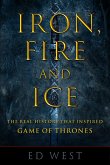'After London is an imaginative foray into the evolutionary results of ecological catastrophe: the Victorian Oryx and Crake. A quasi-medieval romance set in a re-pastoralised England, and simultaneously a gem of avant-garde science fiction, Richard Jefferies' masterpiece has been expertly brought back into the limelight by Frost's fine scholarly edition.' John Plotz, Brandeis University A scholarly edition of a significant and exciting late Victorian science fiction novel Richard Jefferies' After London is uncanny and intriguing, an adventure story, quest romance, dystopia and Darwinian novel rolled into one, but also a pioneering work of Victorian science fiction. Imagining a mysterious natural catastrophe that plunges its people into a barbaric future, Jefferies remarkable novel drowns and destroys London and depicts a challenging 'Wild England' dominated by nature and filled with evolved animals and devolved humans. Of its time but also distinctively modern, After London can, in its uneasy expression of Victorian and post-Victorian anxieties about industrial development, urbanisation, natural resources and climate, be regarded as one of the first novels of the Anthropocene. This new critical edition provides a detailed introduction situating After London in relevant social and political contexts, considering its place in Jefferies' wider canon and its relations to a range of literary genres, and offering a series of readings designed to encourage readers to fully appreciate the novel's productive strangeness. The edition is supported by a Jefferies chronology, further reading list, and two supplementary pieces of Jefferies's writings. Mark Frost is Senior Lecturer in English Literature at the University of Portsmouth. He writes widely on environment, literature and culture in the nineteenth century, and published The Lost Companions and John Ruskin's Guild of St George in 2014. Cover image: Tannenwald I, Gustav Klimt, 1901 (c) Erich Lessing / AKG London Cover design: [EUP logo] edinburghuniversitypress.com ISBN 978-1-4744-0239-2 Barcode Cover image: Tannenwald I, Gustav Klimt, 1901 (c) Erich Lessing / AKG London Cover design: [EUP logo] edinburghuniversitypress.com ISBN 978-1-4744-0239-2 Barcode








